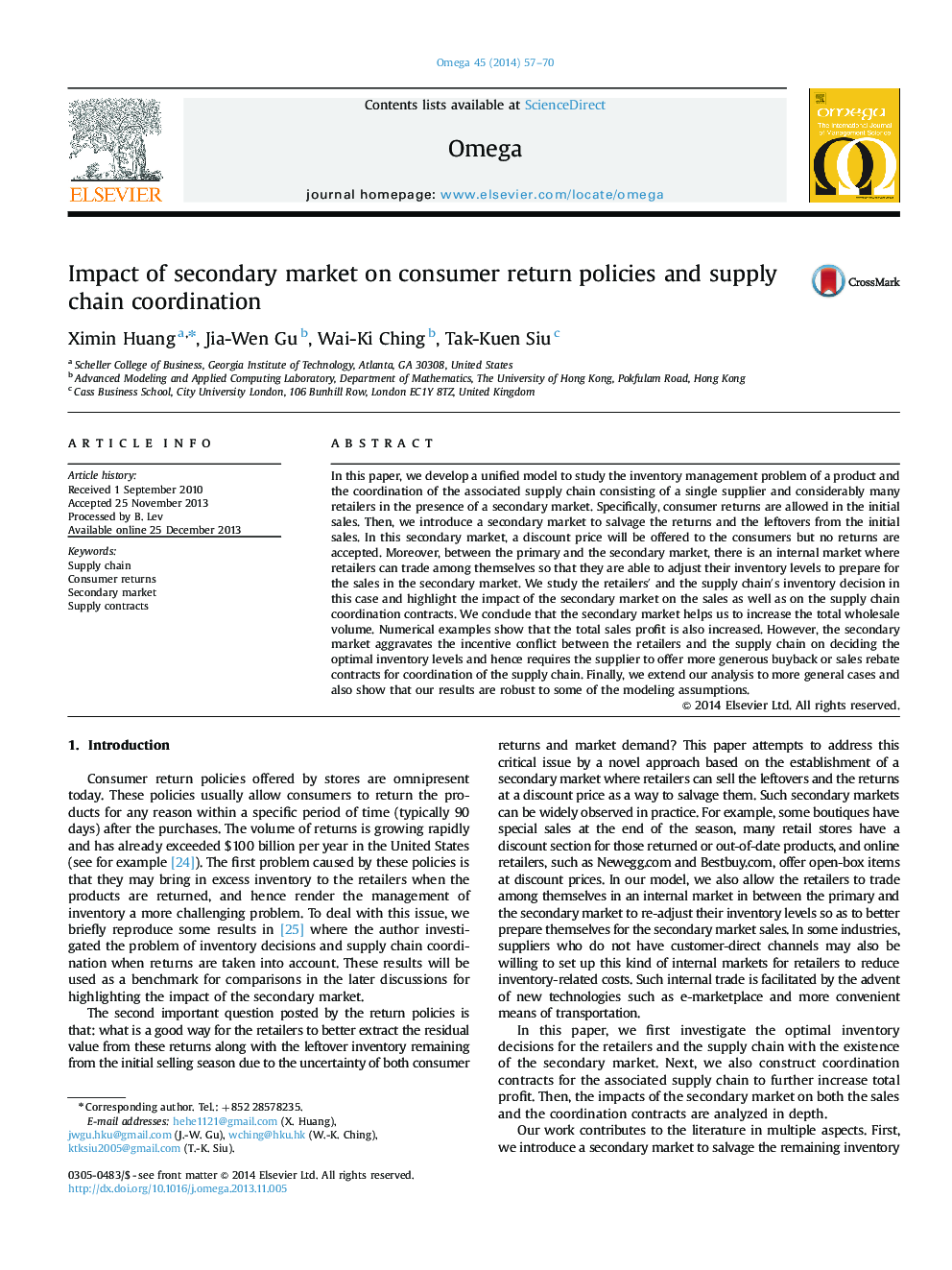| کد مقاله | کد نشریه | سال انتشار | مقاله انگلیسی | نسخه تمام متن |
|---|---|---|---|---|
| 1032775 | 1483681 | 2014 | 14 صفحه PDF | دانلود رایگان |
• We study the performance of supply chains that allow returns from customers who face uncertain product values before purchases.
• A secondary market is established to better salvage the returned and the leftover inventory remaining from the initial sales.
• With the existence of the secondary market, the optimal inventory decisions for the retailers and the supply chain are studied.
• Impacts of the secondary market on both the sales and the coordination buyback and sales rebate contracts are investigated.
• We also extend the analysis to study some more general cases.
In this paper, we develop a unified model to study the inventory management problem of a product and the coordination of the associated supply chain consisting of a single supplier and considerably many retailers in the presence of a secondary market. Specifically, consumer returns are allowed in the initial sales. Then, we introduce a secondary market to salvage the returns and the leftovers from the initial sales. In this secondary market, a discount price will be offered to the consumers but no returns are accepted. Moreover, between the primary and the secondary market, there is an internal market where retailers can trade among themselves so that they are able to adjust their inventory levels to prepare for the sales in the secondary market. We study the retailers' and the supply chain's inventory decision in this case and highlight the impact of the secondary market on the sales as well as on the supply chain coordination contracts. We conclude that the secondary market helps us to increase the total wholesale volume. Numerical examples show that the total sales profit is also increased. However, the secondary market aggravates the incentive conflict between the retailers and the supply chain on deciding the optimal inventory levels and hence requires the supplier to offer more generous buyback or sales rebate contracts for coordination of the supply chain. Finally, we extend our analysis to more general cases and also show that our results are robust to some of the modeling assumptions.
Journal: Omega - Volume 45, June 2014, Pages 57–70
